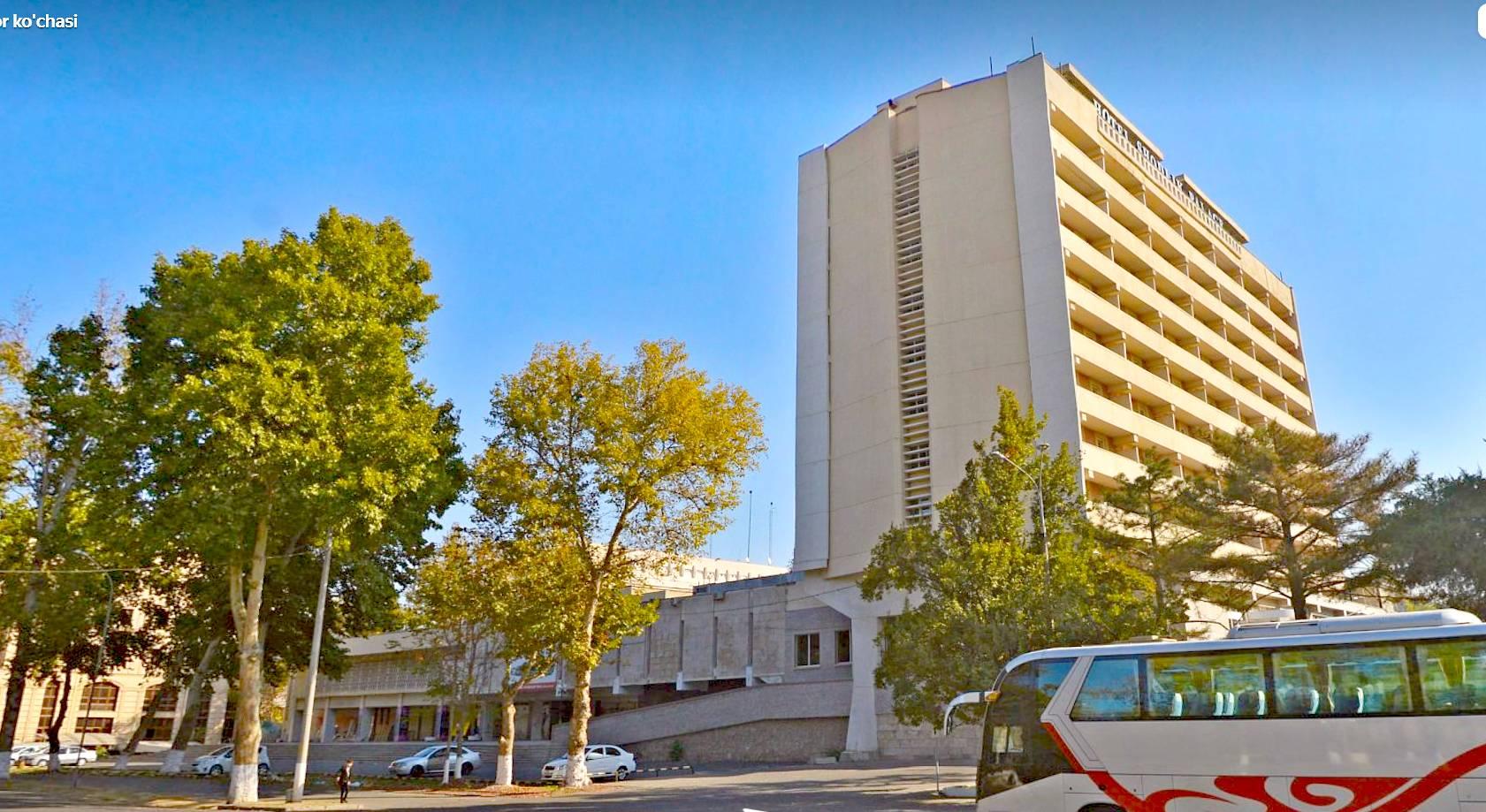
The “Shodlik” Hotel is only part of what was once a large complex built by the Central Committee of the Uzbek Komsomol for youth in 1976. The authors of one of the finest monuments of Soviet modernism are architects from the “UzNIIPGradostroitelstvo” institute: R. V. Bleze, A. M. Blinov, N. A. Gorbenko, and L. P. Khristich.
The
building is located next to the Navoi Palace of Arts (Panoramic Cinema) and
Pakhtakor Stadium. In addition to the high-rise hotel, the complex included a
two-story building with a restaurant and disco halls, a registry office, an
inner courtyard, and a basement where the “Ilkhom” Theater was housed.
The
“Ilkhom” Creative Youth Club initially united numerous interest-based sections,
but most soon disbanded — except for the theater studio led by Mark Weil, which
evolved into the renowned experimental “Ilkhom” Theater.
The
foreign economic tourism production complex “Yoshlik” (“Youth”), as it was
called in the early 1990s, was privatized in 1994. The hotel building was reconstructed
and reopened as Shodlik Palace Hotel.
Exhibitions,
concerts, and events featuring artists and actors are held in the “Ilkhom”
Theater foyer and inner courtyard. The remaining ground-floor spaces are rented
out. The upper floors above the theater, once home to a popular restaurant, now
lie in ruins — though they could become an attractive spot for cafés and
boutiques due to their proximity to the famous theater.
In
spring 2020, ownership rights passed to a new proprietor intending to evict the
theater and build a six-story business center in its place. However, a wave of
public outrage, blog posts, and media coverage saved the building: the theater
was successfully defended.
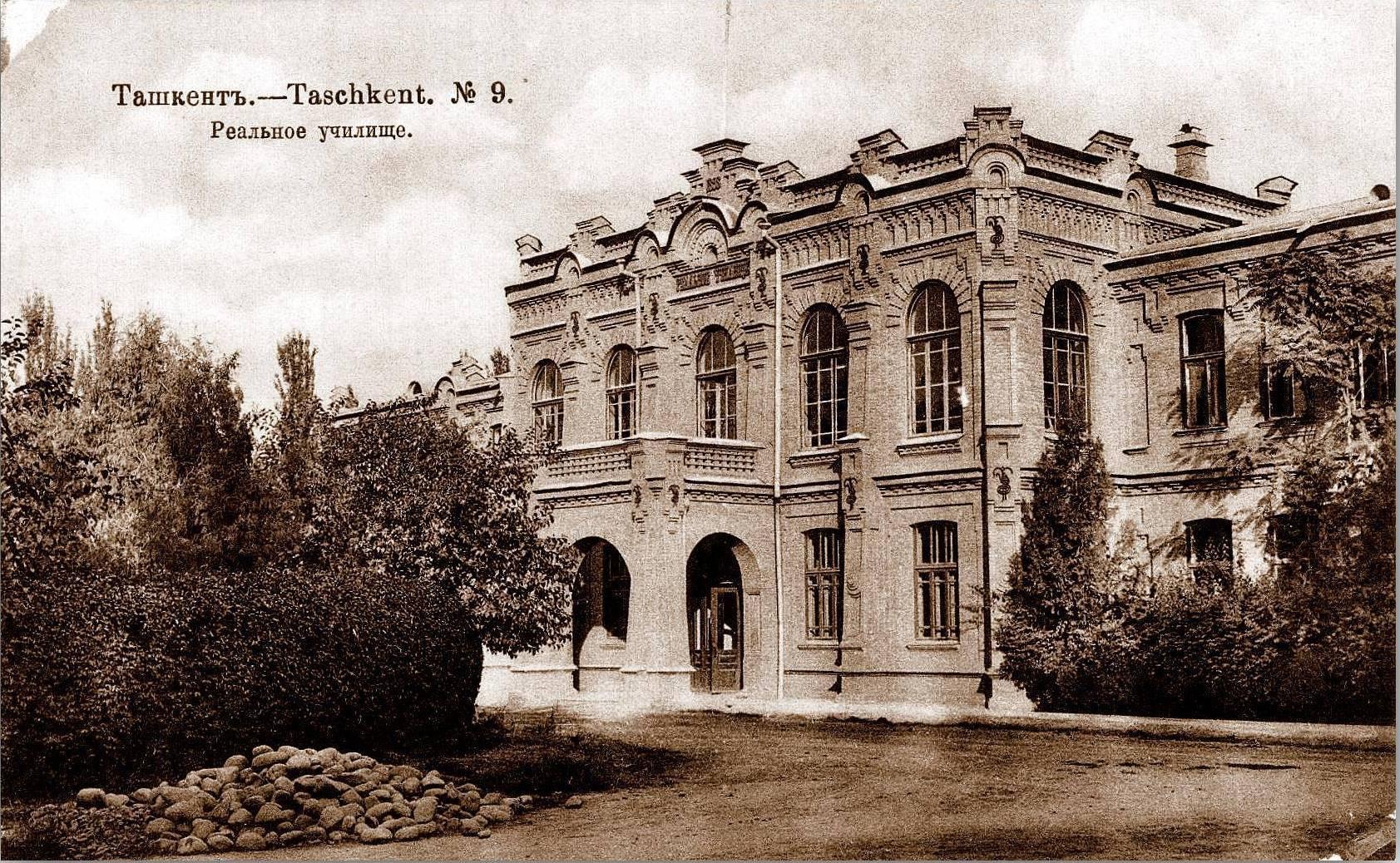
In 1894, the first real school was opened in Tashkent. These schools were called "real" because, un...
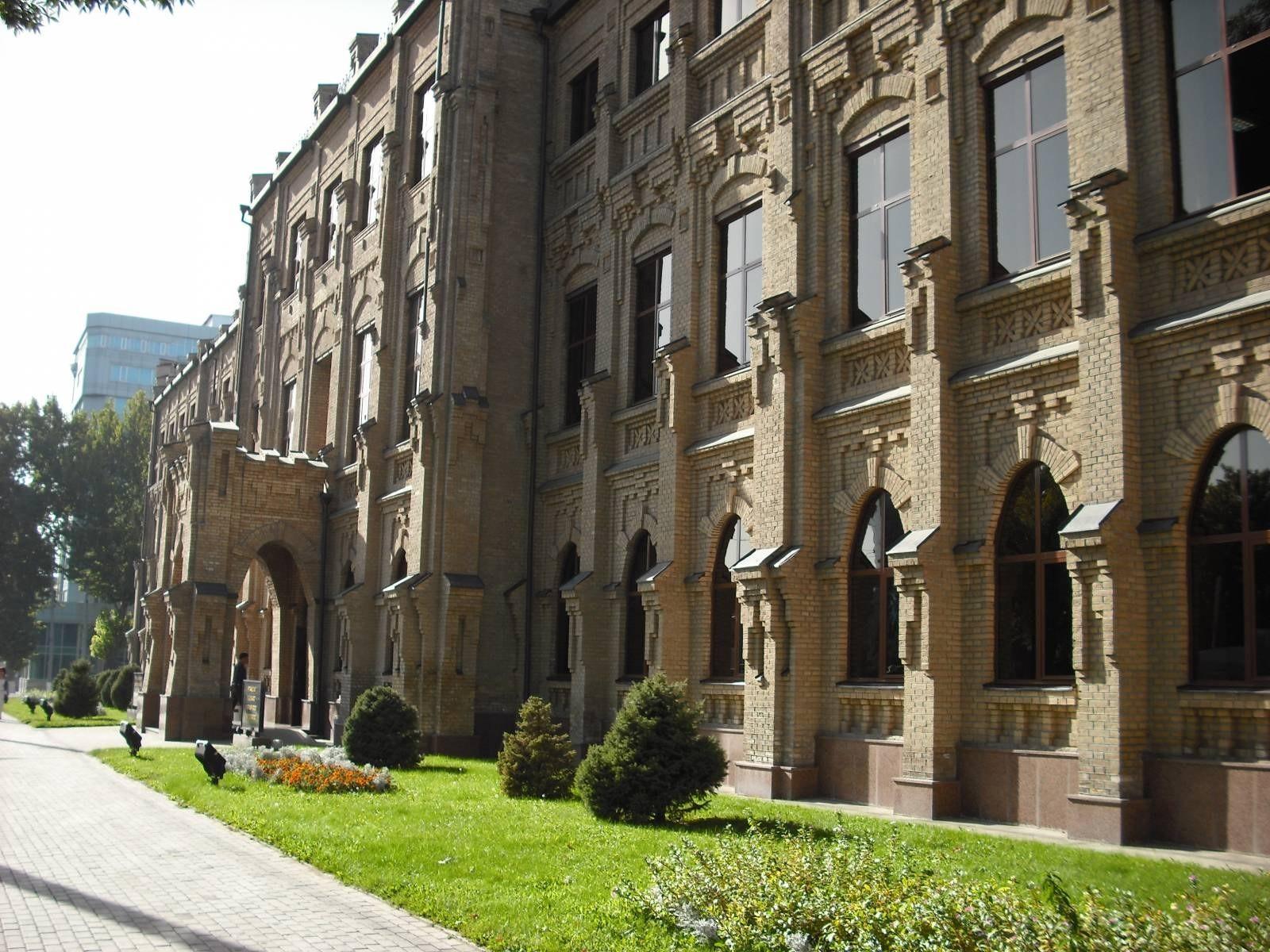
The beautiful, historic brick building located at the intersection of Istiqbol and Shahrisabz Stre...
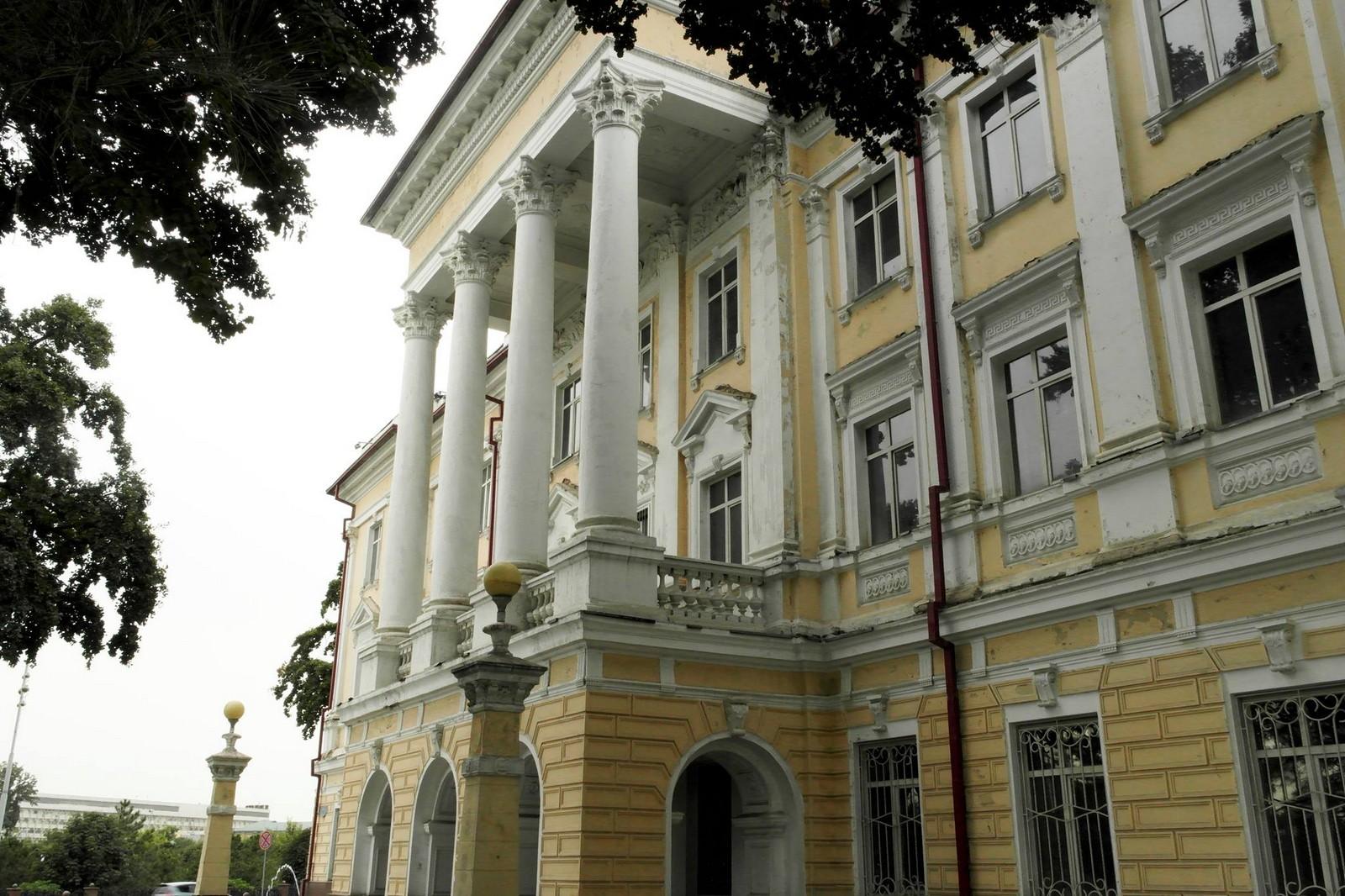
The beautiful building at the very beginning of Mustaqillik Avenue (formerly Pushkin Street) was bu...
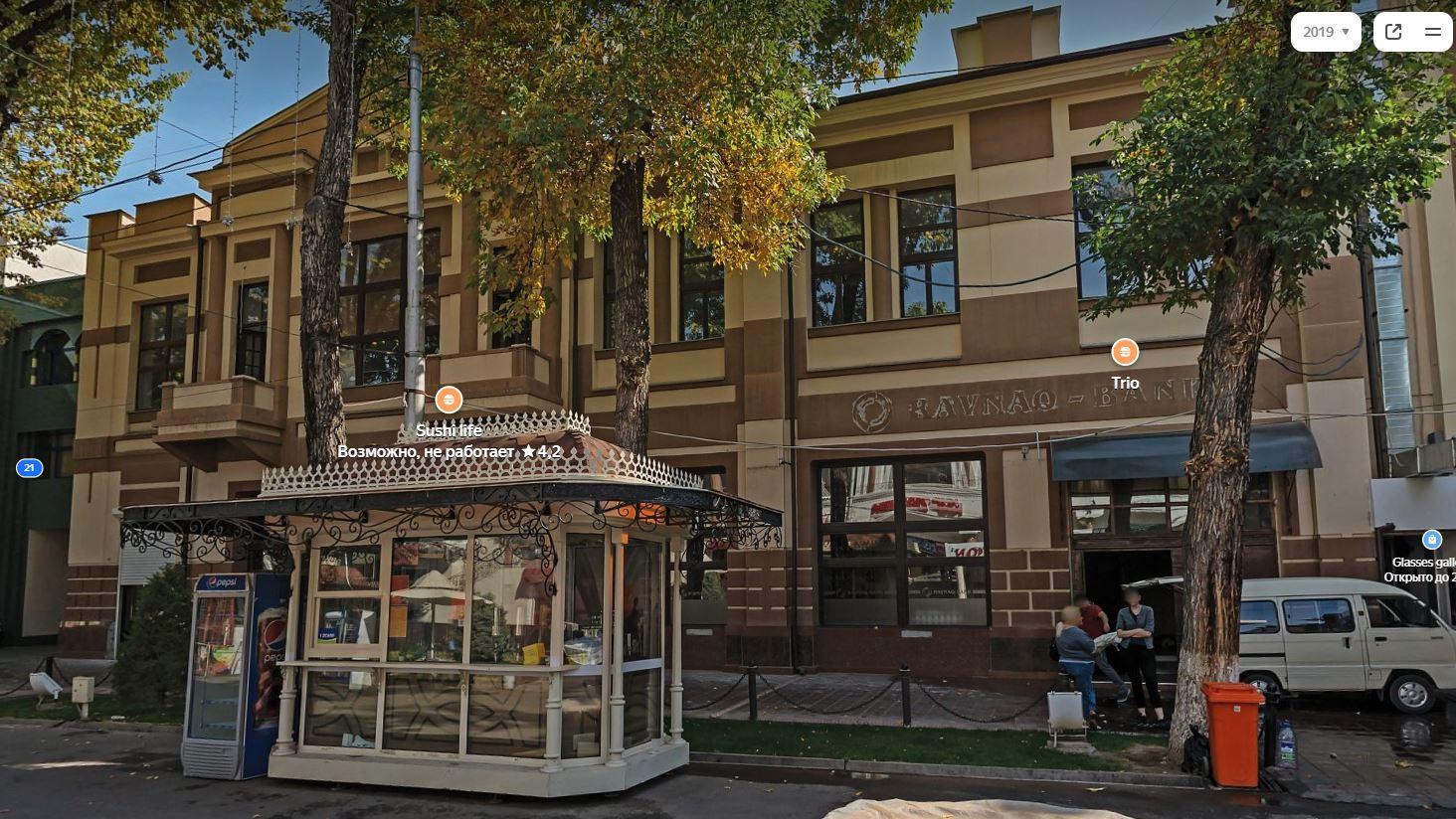
The Yaushev brothers, merchants from a Tatar princely family, built a trading house in 1911 based o...